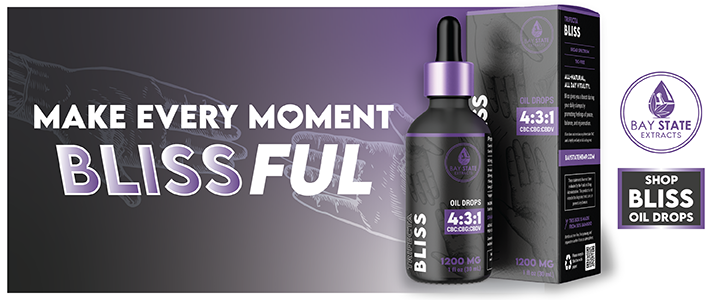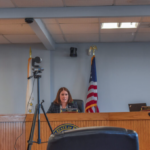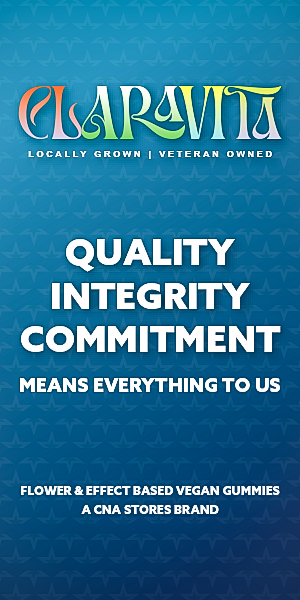
The CCC is “seeking public comment on Host Community Agreements, municipal equity, and social consumption reforms.”
When we last checked in on progress in the Bay State toward getting lounges, venues, or basically any public establishment licensed for the consumption of weed, most advocates and people in line to eventually open such businesses told us that nothing had really changed since the year prior, or possibly before that. This year’s major New England cannabis conference, NECANN Boston, didn’t even have a panel on the topic.
“We’re just kind of at a standstill,” Beth Waterfall, who coordinates the speakers for the event and co-founded the group ELEVATE NE to boost women in the green space, told me in March. She added, “We talked about it [in 2022], and it’s basically the same thing this year. We would love to be able to include that, but I want to educate people about things that they can use now.”
And what people certainly cannot use is the current Massachusetts law for social consumption. Thanks to rules put in place by prohibitionist Cannabis Control Commission (CCC) members in 2018 who crudely amended the initial act passed by voters in 2016, there’s no smoking allowed indoors, plus there are ludicrous restrictions on everything from the required ventilation systems to the types of edibles that can be sold, if any (room-temperature only!?!).
In Massachusetts, Social Consumption Establishment licenses are limited to Economic Empowerment Priority applicants or Social Equity Program participants, microbusinesses, and Craft Marijuana Cooperatives for the first 36 months. That’s not just a coincidence; the same communities where people have been disproportionately impacted by the war on drugs are also places where residents are especially likely to live in a situation—whether because they rent instead of own, or because of tight quarters, or because they live in a federally-funded public housing development that evicts or fines for any kind of smoking—where they can’t consume at home. Urban neighborhoods, for example, need consumption lounges asap.
Since it’s not yet possible for applicants to open up these businesses, those who qualify for the exclusive 36-month window are requesting an extension of that period, as well as changes in the law that would enable them to not only open but eventually profit. And while it’s unclear how the CCC will ultimately manage such adjustments, for now they’re at least making a show of processing feedback. CCC Commissioner Ava Callender Concepcion recently solicited ideas from the networking group Boston While Black, while commissioners at their monthly meeting last Friday announced that their “regulatory working groups [are] seek[ing] public comment on Host Community Agreements (HCAs), municipal equity, and social consumption reforms,” and that same day released to stakeholders and the public a letter stating that, among other relevant developments, their “Social Consumption Working Group is tasked with reviewing the Commission’s existing social consumption regulations to consider whether any new regulations or amendments to the existing regulations are needed to move the Social Consumption Marijuana Establishment license forward in Massachusetts.” Here’s how anyone can chime in:
Interested citizens and stakeholders across the Commonwealth are invited to share their thoughts, ideas, and concerns on these topics. Please submit written comment electronically to Investigations and Enforcement Project Manager Mercedes Erickson at Mercedes.Erickson@CCCMass.com. Comments can be submitted as an attached Word document or as text within the body of an email. Constituents should note in the subject line, “Regulatory Review,” and identify one of the three Working Groups above that should review the comment. All submissions should include the commenter’s full name, city/town and state, and if available, electronic mail address and phone number.
“We are [working at] an aggressive pace right now, specifically with HCAs and municipal equity,” CCC Executive Director Shawn Collins said at Friday’s meeting. “Those are groups that have deadlines as far as the regulations are concerned … but [are] working against an existing set of regulations, therefore we feel as far as the statute is concerned, we do have regulations, but they are worthy of revisiting and being reconsidered.”
Collins added, “We welcome any comment whatsoever and look forward to your input.”
Just be sure to get your input filed by the end of April, and to note that the commission’s “2023 regulatory revision process is still in its early stages, and the Working Groups’ consideration of policy changes is just the first phase of several opportunities for the public to review and provide feedback.” Regarding next steps, “once the Commission drafts updates to the regulations, they will be published, discussed at Commission public meeting, and open for additional comment before they are finalized and promulgated by the Secretary of the Commonwealth in accordance with state law.”
The CCC is required to approve new regulations around these issues (or to figure out some loophole to kick the can further down the road) by Nov. 9.
I have communicated with several stakeholders who are queuing to apply for the first Mass social consumption licenses when they finally roll out. A few of them are more than willing to speak up about the situation, and I will be looking to them for comment as I cover this topic for the next several months and years (and perhaps even decades, knowing the commonwealth). We’ll report extensively on their remarks and advice for the commission to consider, as well as on whether the agency actually listens or continues sabotaging Mass social consumption like their predecessors did when the ball was in their court.

























